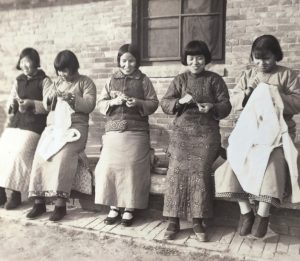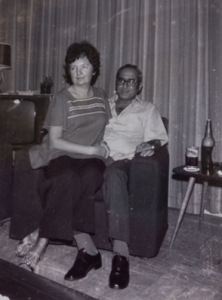Our project recently participated in Heritage Open Days, a celebration of cultural heritage that takes place across many regions of the world in September. Lincolnshire’s theme this year was ‘Voices of Lincolnshire – Stories Unheard’. For our contribution, several members of Reimagining Lincolnshire presented an online discussion about some of their favourite figures from our region’s past, remarkable yet neglected. They are all emblematic of the ways in which our region’s people have, for millennia, meshed into comings and goings, arriving and leaving, across land and sea.
We started with two seventeenth-century women who were central to the struggle for religious freedom, Mary Brewster and Anne Marbury Hutchinson. Mary Brewster was one of the group that came to be known as the Mayflower Pilgrims; for this talk, Dr Anna Scott focused on the back story of her life in Lincolnshire before their departure across the Atlantic. Anna and Neil Baker have created an illustrated children’s story book on this theme, which is available for purchase.

Researcher Judy Harris traced Anne Marbury Hutchinson’s life from her birth in Alford in 1591 to her death in New Amsterdam in 1643. She was an outspoken theologian and women’s leader. Her beliefs were considered seditious and she was banished to Rhode Island: ‘cast out by the very men who had been cast out of England’, said Harris. A household name in New England, she is almost entirely forgotten in her native Alford.
Heather Hughes then considered the four servants who accompanied Joseph Banks’s party on their scientific expedition aboard Captain Cook’s Endeavour (1768-1771). We often pass over ‘servants’ as doing menial work at the behest of others; they rarely if ever receive credit. Yet recent research has revealed that Peter Briscoe, James Roberts, Thomas Richmond and George Dorlton all made lasting and significant contributions to science. The two Black servants, Richmond and Dorlton, perished on the voyage; Roberts and Briscoe survived and continued their interaction with international science and scientists.
Attention then turned to the Black funambulist (or tightrope walker), Carlos Trower. Dr Andrew Walker explained that Trower was one of several Black entertainers who regularly performed in Lincolnshire through the nineteenth century. Known as the ‘African Blondin’ after the renowned Charles Blondin, who crossed the Niagara Falls on a highwire, Trower performed some of his amazing feats over the River Witham, to the delight of huge crowds.

Lincoln-born Walter Canner was the subject of Claire Arrand’s contribution. He studied at St Paul’s Missionary College near Skegness – itself deserving of a far higher profile for its international connections. From 1921 to 1938, he worked in northern China at the Murray Hill Institute for Blind Children, where he developed many facilities to enrich the lives of its pupils. The University of Lincoln holds a collection of his papers.
The presentation finished up with a truly international story of one Lincolnshire family. Dr Victoria Araj, who is the project’s full time postdoctoral researcher, gave a fascinating insight into her grandmother’s family, the Snelsons of Grimsby.
Their journeys connected the family to Lagos, Cairo, London, Beirut, Bethlehem, Rabat, and Melbourne, a tale of empire, diaspora, war, opportunity and fortune.

If you’re interested in more of these stories, you can watch our presentation here.
Heather Hughes
About Judy Harris
I was born and grew up in Louth, Lincolnshire. I have always been involved in education in one guise or another. Originally teacher trained, I moved into adult, community and anti-racist education whilst living in Bristol (1980 to 1992). After completing my M.Ed at the University of Manchester I took up an academic post at the University of Cape Town in 1993. I worked on a variety of adult education and widening participation initiatives in South Africa, specialising in researching the Recognition of Prior Learning (RPL) with a focus on ‘epistemological access’. This work culminated in my Ph.D. (Open University, 2004) and a number of academic publications. Before entering semi-retirement, I worked at the Leadership Foundation for Higher Education (LFHE) and Advance HE. Reimaging Lincolnshire brings together my past and present in a very satisfying way.